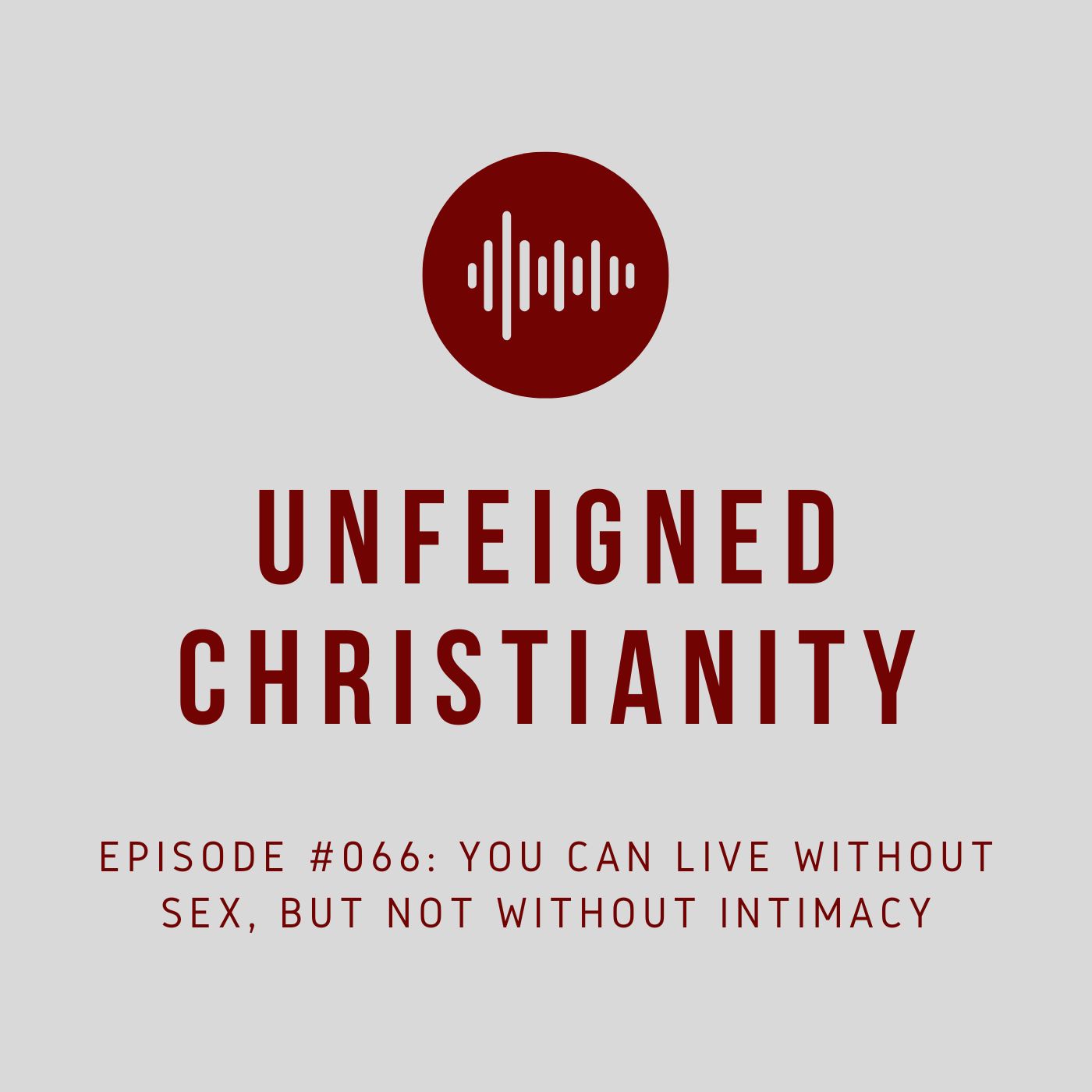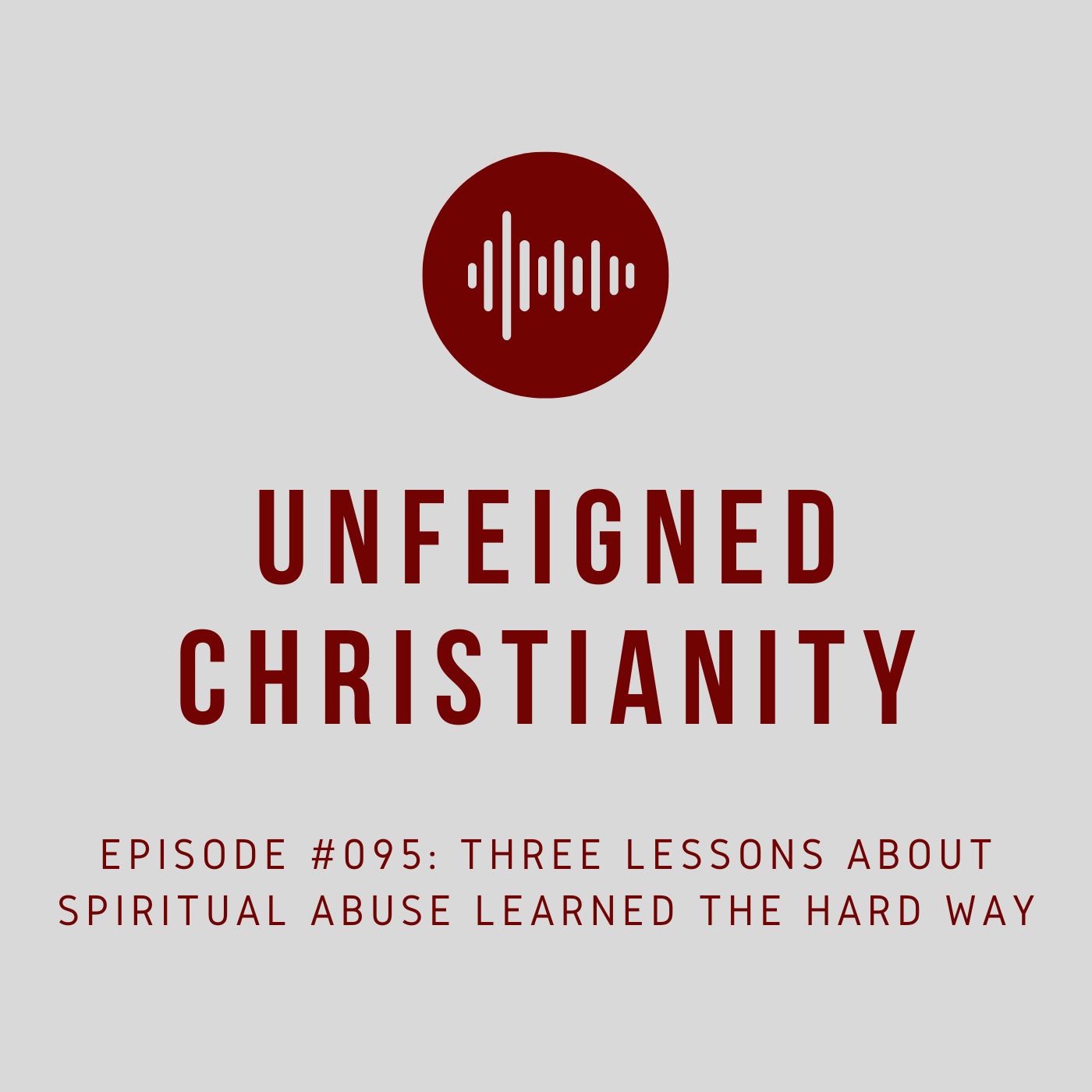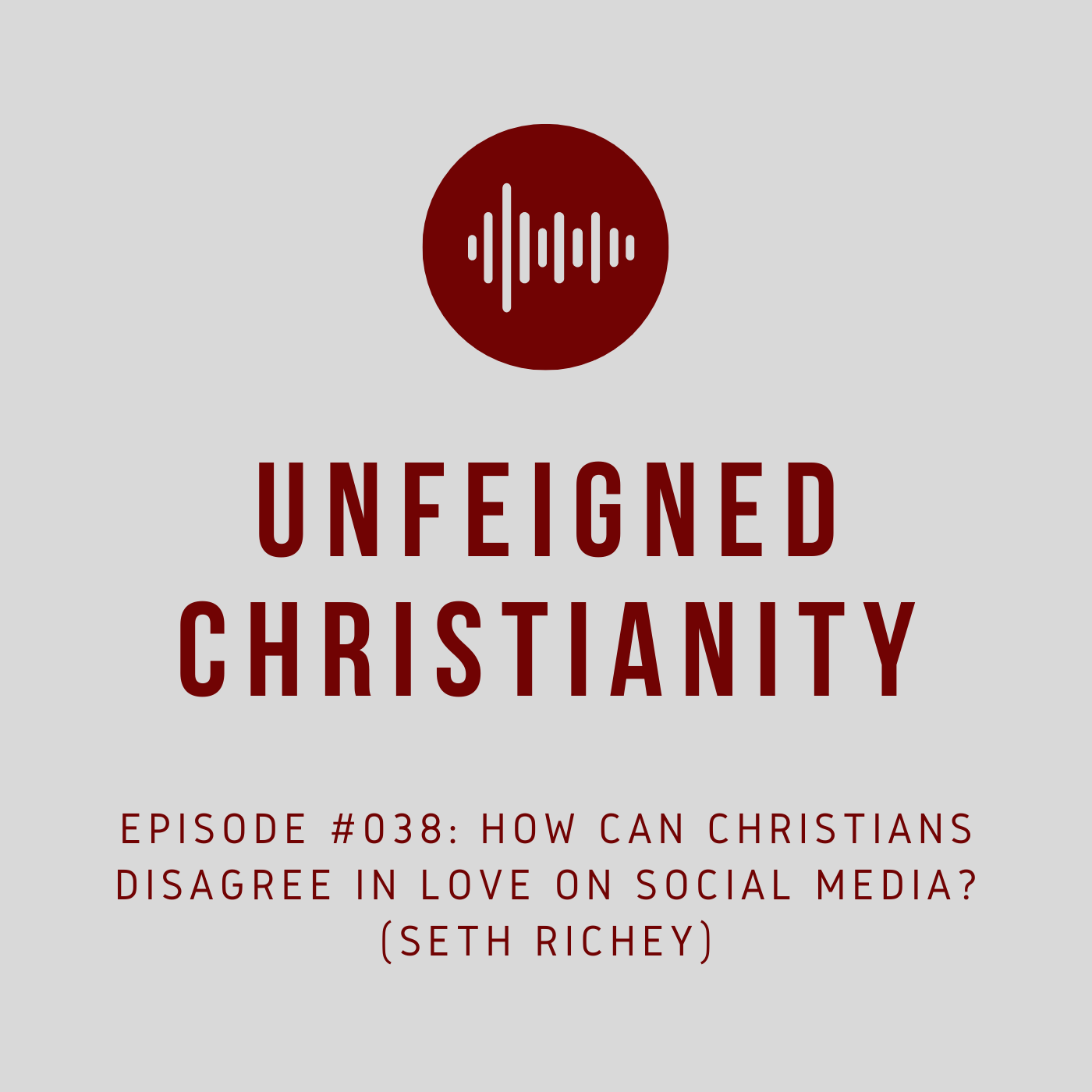Episode Transcript
Speaker 0 00:00:00 Hey friends, Ashley Whitmer with Unpayed Christianity here. Welcome back to another episode, reviewing my book, live Free, making Sense of Male Sexuality. We have three chapters left. We're ready for chapter 18. You can live without sex, but not without intimacy. I, this chapter was interesting because I, I came away really pleased with how I worded some things. In fact, I had forgotten that I was as nuanced as I was when it comes to kind of gender roles and, and kind of some of the stereotypes that we have. However, there is a statement in here that I'm not sure is true, I'm not sure I quite agree with, so we'll get into that more. You've, if you've missed previous episodes, go ahead and click the link below. We've already addressed some of the things that I would say differently if I wrote the book again. Uh, most of it has to do with how, kind of, how I handle Romans, the book of Romans.
Speaker 0 00:00:51 Also, some of the ways I talk about gender roles and purpose as men and women. However, I am grateful now that we're 18 chapters in. I'm grateful that I can say genuinely that I, I am pleased with the book. Yes, there are ways that my perspective, my theology has grown and matured, and I would write things differently, but I, I was a little afraid there for a little bit that I was gonna get farther into it and be like, man, I don't, I don't agree with myself anymore. <laugh>. And so some of that has to do with how we talk about gender roles. And what's interesting is that I can see as I read this through, again, I can see that I was in the middle of processing some of this Wow. I was writing because some of the early chapters, I kind of forget exactly what it was, maybe, maybe chapter five a little bit.
Speaker 0 00:01:49 And then chapter, uh, like around 11, uh, not 11, 12, 13 maybe. I said some things and I'm like, ah, I flush this out differently. But as I get to later chapters where I remember talking about some gender roles and so forth, it's like, well, uh, I hear myself answering a little bit. I I would still probably write it differently, but I, it's not the type of thing where I'm like, I don't agree with that. So here, let's just dive in. One of the things that the, the premise of this chapter, you can live without sex, but not without intimacy. And, you know, I, before I published the book, I published this chapter as a two part article series, and I got some pushback to it from people who I think they were afraid I was downplaying sex. Obviously, they hadn't read the book yet. Um, if you've been reading the book, this is chapter 18 of 20.
Speaker 0 00:02:44 And, and up until then, you see that, that I, I don't downplay sex. Like I'm trying to reframe sex as a very good experience, a very good and healthy part of being human. And so I don't know how those people, if they've read the book, how they, how it lands on them since just as a standalone, maybe there's not enough emphasis on the importance of sex in marriage. But I will say this and, and, um, the, the chapter ends with a phrase that I'm, I'm really grateful, <laugh>, I said, I mean, parted me, but it's sometimes you write and you're like, man, I don't know if this is good or if, if people will like this, or if it resonates. And sometimes I write, when I go back to edit it, I'm like, Ugh, this isn't very good. I knew I was ready to publish when I would go back and read it, and I would get kinda lost in the reading just like, wow, this is good.
Speaker 0 00:03:43 And so this was one of those chapters where it was kind of fun. Yes, there's a statement in here that I'm not sure I agree with, but a lot of it, it was like, wow, that's good. Yeah, I, I forgot I wrote that <laugh>. And so it's encouraging that it's like, okay, all that work, all that effort wasn't just for not, but the, the last paragraph of the chapter, it says, at the end of the day, no matter how much sex we have or how much we enjoy our work, we are all made for meaningful relationship as well. And living free from lust is as much about risking relationally as it is about anything else. I really believe that. Um, and I would say my just personal experience, even since writing this book, confirms that more deeply, and, and this leads to the statement that I'm not sure I agree with.
Speaker 0 00:04:33 Like we as men, very physically, when you're struggling with lust or sexual desire, you think your issue is primarily sexual, right? Maybe we have this idea, I gotta get married, right? Maybe we have, yeah, we're obsessed with who we could pursue in marriage or who we could, whatever. Maybe you're trying to control it. And so you go out for a run or you, you do all sorts of physical things to try to wear off energy, to ward off things. We think we're struggling with a physical thing, then maybe we're kind of learning, we learn some things about emotional health and wounding and how, how, uh, pain, emotional pain can affect us sexually. And so we're processing some of those things. And, and, but there's still maybe something kind of missing. We, we we're, you're reading this book and you're discovering, oh, I need to live for something, a purpose bigger than myself. But ultimately, like one of the deepest needs of humans is for connection community, for intimacy, and really finding emotional health, finding purpose, and then true, fulfilling sex is all done in the context of meaningful relationships. Now, I'm not saying meaningful relationships with that
Speaker 1 00:05:56 Same person. Like you're, you're gonna find close connection community and a community that gives purpose with people who aren't necessarily your sexual partners. But my point is that at the end of the day, if we don't have meaningful relationships, even if we have a work that we can pour ourselves into, and even if we're finding emotional health and we have a way to release ourselves sexually, like there's gonna be an ache inside of us that ends up gnawing at us in our work. And I, I'm speaking this from a very fresh perspective because I've, I've gone through a season of depression where all of a sudden things that I really enjoy doing became burdensome, became like I, I lost interest in them. I had a good, healthy sexual relationship with my wife, and yet I was, I was going through this season of depression and I look back, there's many things that go that can cause depression. But one of the things was some relationships, some key relationships missing in my life. And so let's just dive in.
Speaker 1 00:07:08 I make this statement, men pursue conquest. So I'm, I use this word conquest. I'm trying to appeal to our, our attraction to fighting and battle. I'm not sure, and I, I had a review about this earlier. I'm not sure I would use that word if I did it over again, because, because we think a particular thing with conquest, and I'm actually trying to describe something else. Um, but basically conquest, I'm, I'm using it in a way of like having to dominion over having, you know, ruling and reigning, reflecting God's image throughout creation. So men, I make this statement, men pursued conquest primarily through a cause worth living for, which we had talked about in the chapter just ahead of this, women pursued conquest primarily through meaningful relationships. S is that true? That's a stereotype, is that true? Yes. I do think there is an aspect where women are a little more relationally in tune than men are, perhaps.
Speaker 1 00:08:14 But is it true that these are the primary ways in which we go about having meaning? I don't know. I, I'd like to know what you guys think. I, I would say, I think the, the way I would say it now is I think men and women are both designed to be a part of a cause worth living for, and both designed to have meaningful relationships. And how we interact in our relationships is different. Like we have different tendencies, even though those are still stereotypes, like men generally do have a little bit more of a cognitive logical approach. And women generally
Speaker 2 00:08:54 Have a, a little bit more of an emotional, that's not to say that there aren't men who have more of an emotional approach and there aren't women who are also logical and cognitive, but those are just kind of stereotypes. Stereotypes are there for a reason, right? Like they, it's just how most men that we observe have observed or studies have been done on respond in that way. But I don't know that we can derive, especially if we're, if we're deriving this from scripture, I don't know that we can say men pursue primarily through a cause with living for women pursue primarily through meaningful relationships. I think I put a little too much, well, for, for, for one thing, there's, there's a way of teaching gender roles that is in more recent years is somewhat biased, re perhaps reads into scripture stuff that isn't quite there.
Speaker 2 00:09:54 But I think I myself was maybe putting a little too much emphasis on, you know, the fact that Adam was told to go and take care of the garden even before Eve came along, right? So it was in his caring and naming the animals that he saw, oh, he didn't have Eve. And that somehow that means men are supposed to be going out and caring for, I don't know, because Adam and Eve were both created in the garden. They were both commissioned to, to male and female are both a part of the image of God and the image of God is to reign over and have dominion over the earth. And so I think, I think both are made for relationship and both are made to have a cause worth living for it to, to have dominion over the earth. So anyways, that's one question that I thought about.
Speaker 2 00:10:46 I'd love to hear your feedback. Pardon my cast. I recently had surgery on my thumb. It's kind of a big bulky thing. <laugh>, there is a statement, the same page where I make this statement that I'm like, I don't know if I agree with this. I end that section with a statement I do agree with. And so I'll read it for you here. Could it be that all humans are made for intimacy to be fully known and entirely accepted? Could it be this intimacy while ultimately deriving from God isn't designed to be shared exclusively with God? And could it be when you and I long for friendship and camaraderie, a partner with which to do life? We are looking longing for an intimacy God intends to meet through other people. I think sometimes we have this notion that all you need is Jesus. And I don't know what people refer to when they say that.
Speaker 2 00:11:41 Yes, we need Jesus for salvation, but according to the word of God, we also need people. We also need relationships. We were also made like if, if we, we value the creation story, we were made for relationships. And that's crucial to living in sexual freedom. I'd love to hear your feedback if you have any thoughts. Tomorrow we're gonna talk about the chapter that I think a lot of people kind of assume are is, would be earlier on, it's accountability, internet filters, and then this the thing of the fear of God. What does that have to do with Come back for Tomorrow? And we're just a couple chapters away. So we're done. We, uh, plan to release the audio version later this week on Friday, black Friday. You should be able to access the audio version. And also don't forget, there is a deal going on right now. If you want the hard copy, versioned physical copy of the book, that's 30% off, a Kindle copy is 70% off. You can access them through the links below in the description. We'll see you tomorrow. Grace in Peace.




